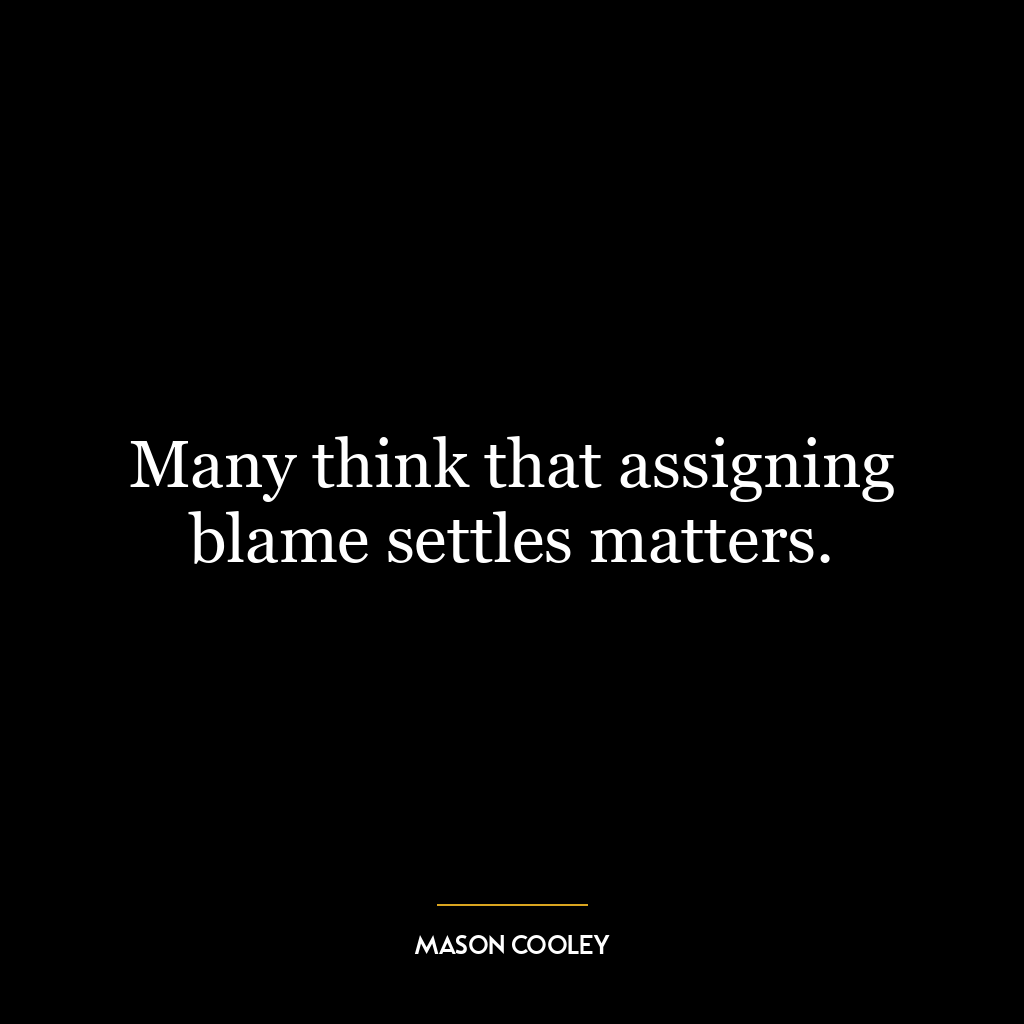The quote “Many think that assigning blame settles matters” is an observation of human behavior, particularly in conflict resolution. It suggests that people often believe identifying the person or entity at fault is sufficient to resolve a situation. Tho, this can be a superficial approach as it doesn’t necessarily address the root cause of the issue or provide a constructive solution. The blame game might bring temporary satisfaction but it doesn’t pave the way for growth, learning, and understanding.
Applying this quote to personal growth implies recognizing that blaming others may feel like an easy way out when faced with challenges or mistakes. But taking responsibility for our actions and decisions leads to more meaningful self-advancement and personal growth.
in today’s world, this concept can be seen in various situations such as politics where opponents are quick to point fingers rather than propose solutions; in workplaces where employees might blame colleagues for failures instead of fostering teamwork; or even on social media platforms where users often engage in blame games rather than constructive dialog.
while assigning blame might offer immediate gratification and seem like an easy fix, it does not contribute towards long-term resolution or improvement. Instead of focusing on who’s at fault, we should strive towards understanding why something happened and how we can prevent similar occurrences in the future – both individually and collectively.













